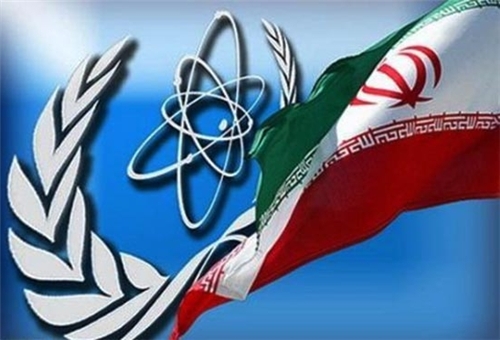
The widespread concern in international community regarding Iran’s nuclear program is that Tehran is pursuing nuclear weapon. According to American intelligence report, Iran has acquire the capacity to produce nuclear weapons to some extant but stopped the process for some time amid insufficient technology for weapon production. Iran started to construct the gas centrifuge uranium enrichment facilities in early 2000 which have been seen as serious source of proliferation. The 2015 Joint Comprehensive Plan of Action has put various restrictions on Iranian nuclear program including specific monitoring and reporting. The US withdrawal from JCPOA in May 2018 under Trump Administration further complicated the matter by halting negotiation process. Later during Biden’s office, many attempts were made and negotiations were held to revive Nuclear Agreement but after several rounds of talks and negotiations US did not joined JCPOA.
Joint Comprehensive Plan of Action primarily deals with Iranian Nuclear Program but the westerns powers especially U.S, U.K, Germany and France viewed reviving negotiations as an opportunity to impose additional conditions on Iran and tried to expand the scope of JCPOA by including Iran’s missiles and drone capabilities. Iran, on the other hand, even after the de-facto withdrawal of U.S and European officials from the agreement kept its stance of unwillingness to pursue nuclear weapon. International Atomic Energy Agency verified at the beginning of the 2019 that Iran’s nuclear activities are increasing as per JCPOA limits but Iran stayed in close cooperation with IAEA who has been visiting Iranian nuclear sites more vigorously. As per 2024 US annual intelligence threat assessment, Iran is not undertaking any important nuclear development activities which are crucial for developing any testable nuclear weapon.
The ongoing Gaza crisis in the Middle East and additional Israeli aggression against Lebanon and Iran has changed the Iranian threat perception which can alter its military policy. Traditionally, Iran viewed its nuclear program as prevention against direct invasion of United States in Iranian territory over accusation of Iran’s nuclear program. The policy also pointed out that during any such attempt, Iran could easily produce nuclear weapon. The nuclear policy acts as an insurance to prevent any U.S invasion in Iran similar to Iraq in 2003. The capacity of Iran’s “near-threshold” did not prevent Israel to target Iran because Israel sees Iranian nuclear capacity as existential threat and has long searched for the means for its elimination. The Kamal Kharrazi, the advisor of supreme leader of Iran, said in early May that Iran does not intent to build atomic bomb but if Iran’s sovereignty and existence is threatened by Israel then they will have no choice but to change their military doctrine. The comment was made by Iranian official in the face of ongoing military assault of Israel in Gaza, Southern Lebanon and primarily, Israel’s attack deep inside the Iranian territory on April 19. The strike was carried out on Iranian military site which was in close proximity to nuclear technology center of Isfahan. The attack did not directly target Iran’s nuclear site but it increased the threat of regional conflict escalation. Previously, Israel also attacked Iranian embassy in Syria which killed seven members of Islamic Revolutionary Guard Corps including two elite commanders of Quds Force in April. Iran retaliated to the embassy attack by firing missiles to Israel. The comment made by Kamal Kharrazi has raised questions about Iranian claim of peaceful use of nuclear program.
Iran is enriching uranium around 60 percent whereas for nuclear weapons enriched uranium is required up to 90 percent. According to IAEA, Iran is only non –nuclear state that is enriching Uranium at the high level of 60 percent with accumulation of large uranium stockpile. The IAEA head, Rafael Mariano Grossi accused Iran that it is not fully transparent with IAEA regarding its nuclear program. The deputy head of Atomic Energy Organization of Iran (AEOI) responded by saying that Iran made it clear since day one that its nuclear program is for peaceful activities and they have always provide answers to all the questions posed by IAEA. Grossi comment was made in response to ex-Iranian official who said that Iran has Pieces of nuclear at its hand. Iranian authorities said that Grossi chose to react on the comment of ex-Iranian official but ignored the comments made by Israeli Heritage Minister to nuke Gaza. In order to put diplomatic pressure on Iran, IAEA’s, the UN nuclear watchdog, board of governance passed the resolution and called Iran to increase cooperation and reverse barring of nuclear inspections. The motion was brought by Britain, France and Germany on June 5th, 2024 and was opposed and turned down by Russia and China. Through this motion, E3 has sent strong and renewed massage of support to IAEA efforts regarding Iranian nuclear program. Iran, on the other hand, responded by saying that western countries decision was hasty and unwise, and it will bring detrimental effects on the diplomatic engagement between Iran and other parties, and claimed that the motion was presented without any legal, political and technical basis. In letter to UN Secretary- General Antonio Guterres and rotating president UNSC Joonkook Hwang, Iran said that remedial measures taken by Iran are in full compliance with JCPOA. Iran rejected all the allegations and restates its position regarding peaceful nuclear program and JCPOA.
